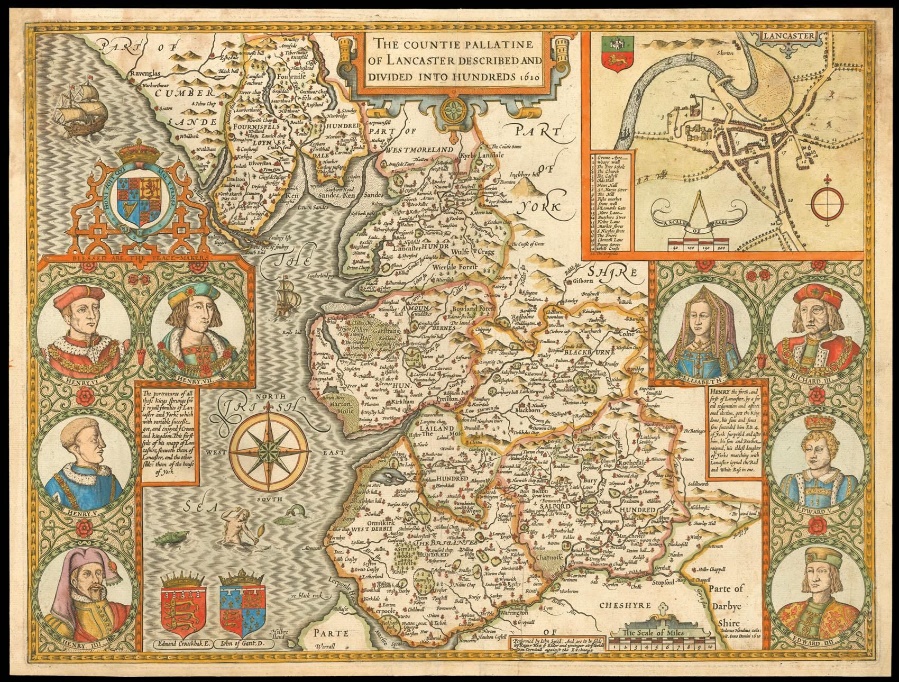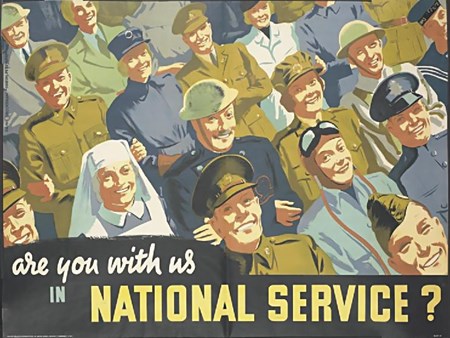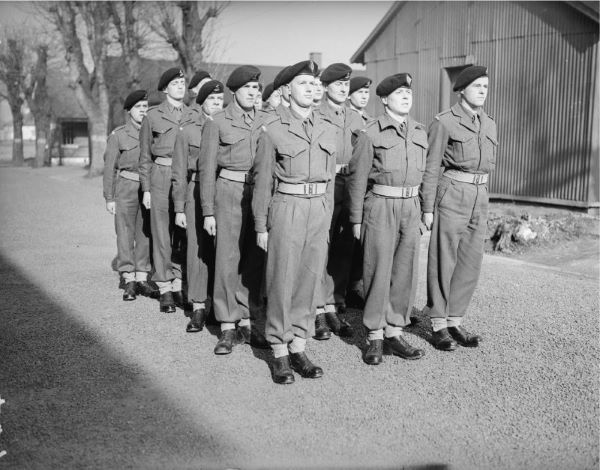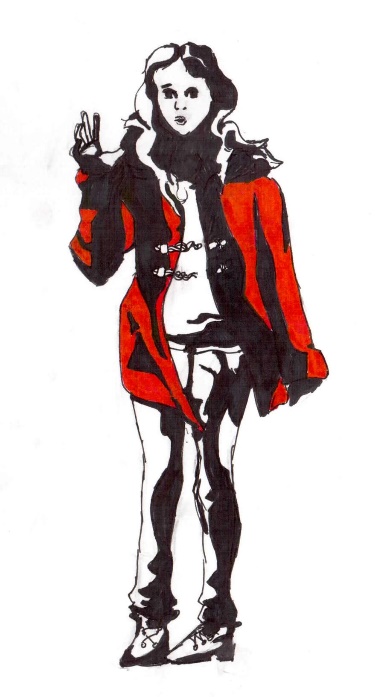HAPPY CHRISTMAS AND A HEALTHY NEW YEAR TO ALL SUES MEMBERS!

Introduction
This second Christmas edition of FORUM contains a quiz, a form of family entertainment that often emerges at Christmas get-togethers; a thoughtful article from Alan Potter on national service; and a more frivolous piece suitable for the season of pantomime.
Our first extended course this academic year was on ‘England under the Norman Kings and Queens’ and it has recently been completed. We can now look forward to Roger Mitchell’s eight-week course on ‘The Country House in the Twentieth Century’, which starts on Monday January 10th at 10.30 am at All Saints. Roger will be in touch with all those who have been registered for the course.
We report on Alan Potter’s talk on science, and you may like to note that we now have speakers and topics for the two remaining Friday sessions. On 25th February Mary Ormsby will speak on ‘The Scarisbricks of Scarisbrick Hall’, and on 24th June we have Jill Newsham on ‘Modern Art for the table and the Harrods Exhibition of 1930.’
As always we invite feedback on FORUM from members and will welcome contributions.
An item of headgear was left behind at the last meeting. If you think it is yours, contact Alan Potter.
All You Need to Know About 1066 and All That
We all remember the date, but was Harold actually hit in the eye with an arrow, and besides ‘What did the Normans really do for us?’ These questions and many others were tackled in Peter Firth’s fascinating course on ‘England under the Norman Kings and Queens’. A complex period of history was presented with great clarity, frequently illustrated by original sources. Discussion and debate were often provoked, which added to the engagement of the group. What was particularly significant was the information Peter provided about the role of women, a theme that is often overlooked. This was an excellent addition to our programme of events and showed that the format of an extended course is welcomed by many of our members. It was also good to be once again in a face-to-face but safe environment.
John Sharp
Science and Pseudoscience
Over the past two years, scientists and their laboratories have dominated our newspapers and television screens as never before. This was therefore a timely lecture as well as a serious one, but, as FORUM readers will already know, Alan is able to combine serious content with entertaining delivery. For a historian like me, it was reassuring if unexpected to begin in the late 19th century, although Electric Shock Therapy was new to me. Alan was able to show that, like us, the Victorians were all too ready to accept novel ideas from so called experts. Today’s t-shirt slogans – ‘Think less, feel more’ and ‘I’m trying to think. Don’t confuse me with facts’ – also came under his scrutiny and failed to impress. Instead, he championed Scientific Method, reminding us that this is not the natural way for us to behave. We are prone to bias, we prefer evidence that suits our prejudices and we believe ‘experts’ even when they are speculating about matters that lie outside their field of expertise. Instead, we need to make a conscious effort to treat all evidence fairly and to rely on peer review as the most reliable judgment.
Science and pseudo-science can never be neatly separated, because they lie on the same spectrum. The true scientist needs to be aware of this and to make every effort to expose the deliberate fake and to show the error of the accidental falsehood. Alan’s examples ranged from medicine to dowsing and it was good to have brief appearances from the Loch Ness Monster and from the Flat Earth Society and its Website.
Lively and wide-ranging discussion followed the lecture and dowsing in particular helped us to realise that the boundaries between science and pseudo-science are still not entirely settled.
This was a particularly well attended meeting and a warm but well-ventilated hall, combined with mask wearing and socially distanced chairs, gave us the satisfaction of feeling that we were ‘following the science’.
Roger Mitchell
How Well Do You Know Lancashire?
Seasonal Quiz

How well do you know the locality? Here’s something to while away the time when the crackers have been pulled, the jokes groaned at and the pun questions scorned. Put away the smartphone and laptop and close the computer. See how well you can perform without the help of Google! Answers next time.
- Which soft drink was created in 1908 by Noel Nichols of Blackburn, a wholesaler of herbs, spices and medicines?
- Which town is famous primarily for its bus and truck manufacture?
- Name the county town of Lancashire.
- Which motorway connects Preston to Blackpool and is just 11.5 miles long?
- What did 18th-century Lancashire weaver and carpenter James Hargreaves invent?
- Which infamous event took place at St Peter’s Field, Manchester, in 1819, when cavalry charged into a large crowd?
- A Graham Ibbeson statue of which comedian stands in the performer’s seaside hometown?
- Which seaside resort on the Fylde coast of Lancashire is also notable for hosting golf’s Open Championship more than 10 times?
- Who wrote the 1937 book The Road to Wigan Pier, which investigates the bleak living conditions among the working class in Lancashire and Yorkshire?
- The trials of which witches in 1612 are among the most famous witch trials in English history?
- In which decade was Blackpool Tower first opened to the public?
- Which football club plays Blackburn Rovers in the East Lancashire derby?
- In which 1961 film do three Lancashire farm children discover a bearded fugitive hiding in their barn and mistake him for Jesus Christ?
- Who is the Duke of Lancaster?
- Name the Lancashire entertainer who was born in Wigan, died in Preston and had a funeral in Warrington which attracted 100,000 mourners?
- He has played for and coached England at cricket, was born in Accrington. Who is he?
- Blood is a key ingredient of which famous Lancashire dish?
- Which year did the Blackpool Illuminations start?
- Which diminutive radio star took his name from his hometown?
- Which school was the inspiration for Tolkien’s Lord of the Rings – the film adaptation of which starred Burnley-born Sir Ian McKellen.
Mary Ormsby
Bring Back National Service – For Those in Later Life?
This latest blog, first aired on the www.longlifelearning.co.uk website, raises a question worthy of discussion. If, after reading, you wish to contribute a comment, do feel free to send your thoughts to one of the contacts given below.
Almost from when it was abolished in 1960, there have been regular cries for UK National Service to be restored. Those advocating it point to the fact that is engenders a sense of service in young people towards the country, provides an opportunity for them to give something back (for their education, perhaps) and also instils a discipline that would help to strengthen that in society as a whole. In addition, others argue, it mixes people up from different backgrounds and, in doing so, brings the country together in a way no other initiative can do.

Interestingly, the loudest voices often come from members of the older generations who promote these values the strongest. However, such values are just as important at any age and, perhaps, it is a time to consider the advantages of a form of ‘national service‘ for those in later life who have retired from any full-time work and have both the time and the opportunity to ‘give something back’. Of course, many older people already do so through voluntary work from helping in libraries and schools to being part of organisations fronting charity shops or collecting funds for those in need. However, a National Volunteering Service could do so much more.
First of all there would be an expectation on everyone to participate in some way rather than leave it to the few. In doing so, the mixing up of people from different backgrounds would be achieved and the isolation many older people feel could be tackled. There would be opportunities to use the skills they have acquired throughout life as well as chances to learn new skills, often presenting the challenge beneficial to older learners. There would be gains from conversation, the exchange of, possibly opposing, views and expressing opinions and emotions to people new to your close circle of friends and family. Finally, with such a large ‘workforce’, there would be a real shared sense of achievement leaving Councils and other supporting bodies with time to focus more on the tasks they are set up to carry out.

In fact such a service could, perhaps, be managed through local Councils giving people an involvement that has drifted over recent years. Councils could then allocate people to tackle local tasks that need doing rather than tasks the individuals feel they would like to do. In this way, the benefits to the local community could be both seen and enjoyed by the very people who use them daily. Unlike National Service for teenagers, involving older volunteers, living in their own homes as usual, would ensure the cost to the public purse would be quite small.
Finally, this approach would show the younger generations the value of those in later life and the key role they have in society. In fact, if a National Service was then brought back for young people, they could work with, and alongside, older people sharing experiences and cementing a whole community approach to improving the lives of others. We know from research the value to be gained by older people by giving to others, socialising, learning and being active physically. Therefore, any initiative providing all this for everyone would ensure the country spends less on sustaining its elderly population while receiving so much more back from them.
Alan Potter

‘What a way to spend Christmas, mate!’
Rosie’s Adventure – Another Fable for Our Time

Rosie Mantle, who was small for her age, needed a few more credits to qualify for her Duke of Edinburgh award. She’d read somewhere that visiting old people at Christmas was particularly well-regarded, and she suddenly thought of her grandmother, living alone in her flat in a tenement block, in what was, let’s face it, a not very salubrious neighbourhood. So she loaded up her rucksack with a few goodies, which she thought her grandma would like: pizza, burgers, mince pies, chocolate, cream cakes, crisps, some tonic water and a bottle of gin. (She would have bought some vapes, but the shopkeeper said she was too young.) Rosie put on her favourite anorak, which was a sort of scarlet colour, and then set off. It was not far to the tenement block, so she went by bike.
Meanwhile grandma was alone in her flat, watching daytime television (she particularly liked reality programmes), when there was a knock at the door. Muttering a profanity, grandma got up and went to the see who it was. At first she looked through the peephole and could just about make out the smiling face of a young man, who was obviously aware that she was there. ‘Congratulations, grandma,’ he said, ‘Guess what, you’ve won a big prize on the lottery.’ Grandma was an avid purchaser of lottery tickets and had always believed that her big moment would come. She opened the door and invited the young man to step in. In no time he was sitting down. Grandma put the television on mute and offered him a cup of tea.
‘No need for that,’ the young man said, ‘it’s champagne you’ll be wanting. You have just won the big one, a cool million.’ He then looked a little more serious. ‘My name is Magnus Malus Lupus and I represent the National Lottery. It’s my job to fix the pay out, and then you can celebrate.’ ‘Oh, that’s wonderful,’ drooled Grandma. ‘All I need is your bank details and it’s done.’ ‘Well, I’m not sure….’ said Grandma. ‘Don’t worry,’ said Magnus. ‘I don’t want your password or anything like that. Just the details from your cheque book and a sample signature. Just put it in your normal writing here on this sheet.’ Grandma took the cheque book from her handbag and signed the paper as requested. The young man then hit her on the head with a rather tasteless ornament that grandma treasured and was about to make a get-away, when he heard the sound of a bicycle bell just outside the front door and a voice shouting ‘Hi, Grandma, it’s me, Rosie.’ Quick as a flash Magnus pulled grandma’s inert body into the kitchen, removed her wig and a rather flashy shawl, put the hairpiece on his own head and wrapped the shawl round him. He then picked up the ornament, sat in grandma’s chair and pretended to be asleep.
As it happened Rosie had a spare key for her grandma’s flat, so she was able to let herself in and was somewhat surprised to find the figure of what she supposed was her grandma dozing on the chair. (At this point it is worth pointing out that Rosie, although in the bottom stream at her comprehensive school, was not entirely dumb. She knew something was wrong but decided to play along.) ‘Why, grandma,’ she said, ‘What a lovely shawl you have on.’ ‘All the better to pass on to you when I go,’ replied Magnus in his best attempt at grandma’s voice, adding ‘which might be soon’ under his breath.’ Rosie continued, ‘But your hair’s all a mess.’ ‘All the better for you to give me a facial and fix it,’ replied Magnus, adding to himself, ‘to look good for the undertaker.’ ‘And that ornament, grandma, why are you holding it?’ ‘All the better to bash you on the head and get away,’ said Magnus, leaping out of the chair.
Now Rosie had recently been attending karate classes, so she knew what to do. With a quick ‘Ah so’ she did her specialist high kick and knocked Magnus to the ground. Just then there was a voice from the door, which she had left unlocked. ‘Can I come in? It’s Woodie come to do your feet.’ The chiropodist entered the room just as Magnus was trying to pick himself up. ‘Oh I know him,’ said Woodie, ‘he’s been trying it on with all the old ladies in these flats.’ Woodie had also been to karate classes, so he delivered an edge-of-hand blow to Magnus’s head, which resulted in him collapsing again.
The outcome was that they found and revived Grandma, who wasn’t too badly hurt and then phoned the police, who came and removed Magnus. The three of them sat down and had a little celebration with the goodies that Rosie had brought, especially the gin and tonic. Woodie was quite young for a chiropodist and Rosie rather fancied him. But that’s another story.
Charlie Perro (nom du clavier)
Contacts
Chair: Alan Potter
alanspotter@hotmail.com
07713 428670
Secretary: Roger Mitchell
rg.mitchell@btinternet.com
01695 423594 (Texts preferred to calls)
Membership Secretary: Rob Firth
suesmembers74@gmail.com
01704 535914
Forum Editor: Chris Nelson
chris@niddart.co.uk
07960 117719
Facebook: facebook.com/groups/southportues
See our archive for previous editions of the SUES Forum!